CAN- Monster Movie SPOON 004 KRAUT 12" Vinyl LP Album
This is the 1978 issue on Spoon with white labels, bearing only one catalogue number (SPOON 004) and NO barcode.
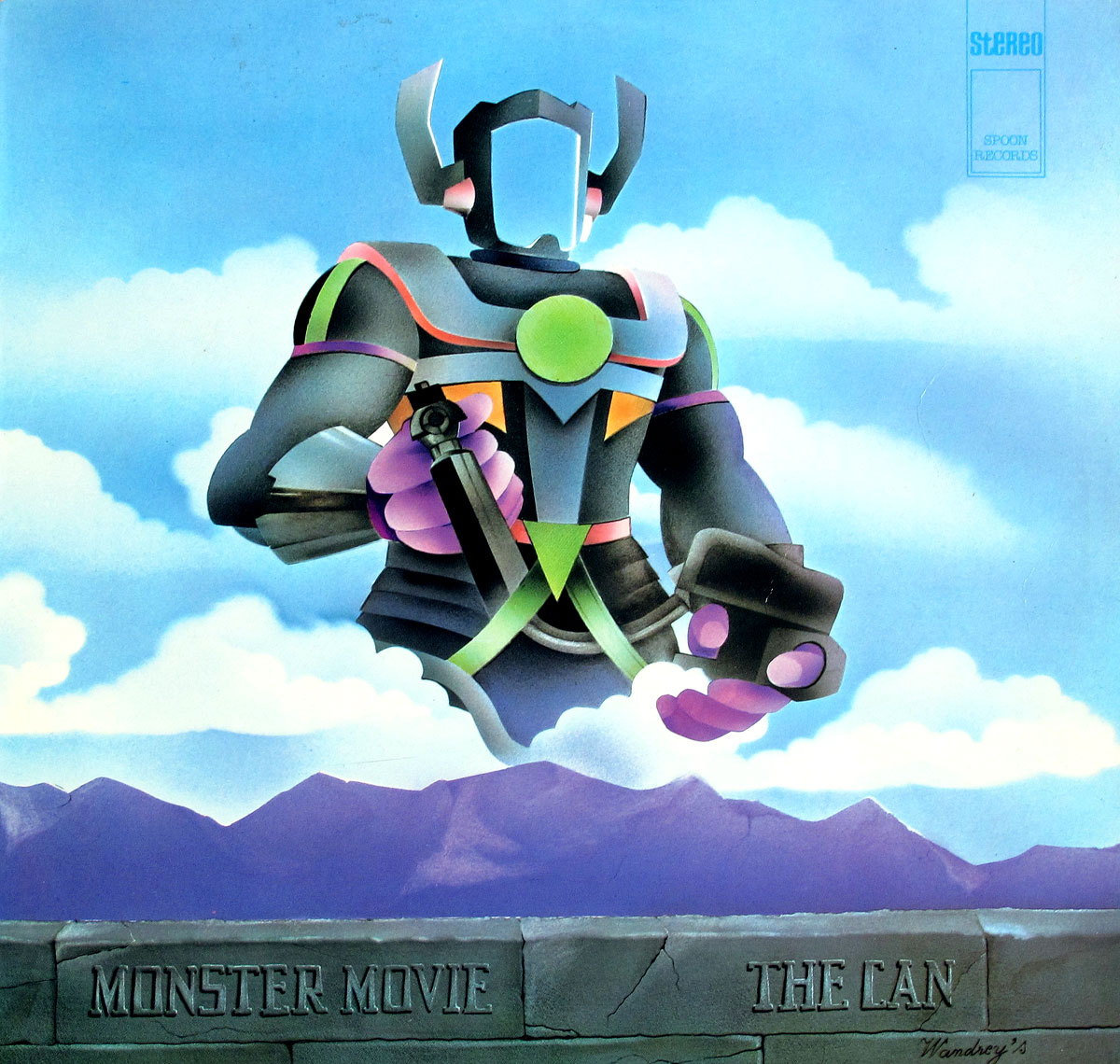
This is the 1978 issue on Spoon with white labels, bearing only one catalogue number (SPOON 004) and NO barcode.

|
Album Description & Collectors information: Monster Movie is the debut album by the German krautrock band Can, recorded and released in 1969. After the release of their first two singles in 1968, Can produced an album that was to be their full-length debut, entitled Prepared to Meet Thy Pnoom, but no record company was willing to release it. Monster Movie was Can's attempt to make a more accessible record for commercial release. |
|
The cover of the album depicts the giant faceless figure of Marvel Comics' character Galactus, and is credited to "The Can", a name originally suggested by vocalist Malcolm Mooney and taken on as a result of a democratic vote. Previously the band were known as "Inner Space", which later became the name of their purpose-built recording studio. Some copies of the LP bore the subtitle "Made in a castle with better equipment". Upon its release in 1969, the album became very influential in the development of the krautrock genre. From the Velvet Underground-inspired "Father Cannot Yell", to the 20-minute jam (pared down from 6 hours) "Yoo Doo Right", Monster Movie brings together elements of psychedelic rock, blues, free jazz, world music and other styles of music in which the members of Can were steeped. With its balance of songwriting, improvisation, experimentation, and layering of sounds, the album set a standard for Can's subsequent albums in the early 1970s, Monster Movie enjoys the distinction of being the only album released during the Can's original decade as a band on which Malcolm Mooney performed all of the vocals. Two more Mooney songs appeared on 1970's Soundtracks album, with the majority featuring his replacement, Damo Suzuki. |
|
Music Genre: |
Krautrock, Acid, Psychedelic |
|
Album Production Information: |
The album: "CAN - Monster Movie" was produced by: Can This album was recorded live at: Schloss Norvenich Album cover design: Wandrey Studios, Hamburg Liner notes by Karlheinz Freynok |
|
Record Label & Catalognr: |
White Spoon Records Spoon 004 / 66.22.237-01 |
|
Media Format: |
12" LP Vinyl Stereo Gramophone Record Total Album (Cover+Record) weight: 230 gram |
|
Year & Country: |
1969 Made in Germany |
Personnel/Band Members and Musicians on: CAN - Monster Movie |
CAN's Line-up:
|
Complete Track-listing of the album "CAN - Monster Movie" |
|
The detailed tracklist of this record "CAN - Monster Movie" is:
|
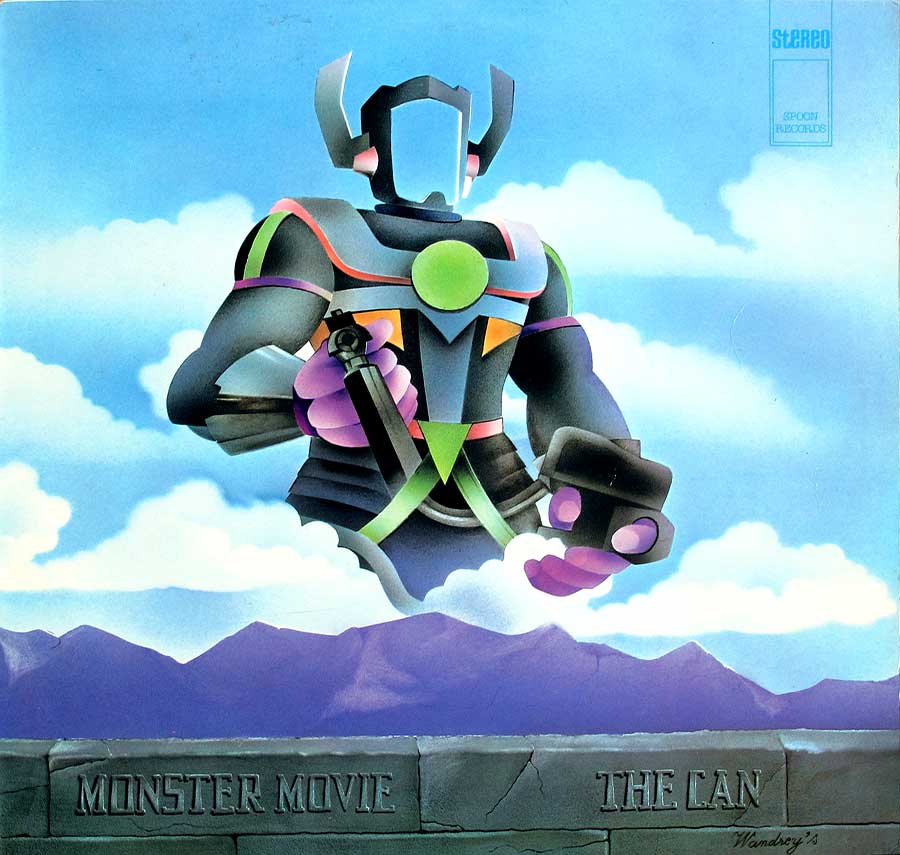
Note: The photos on this page are taken from albums in my personal collection. Slight differences in color may exist due to the use of the camera's flash. Images can be zoomed in/out ( eg pinch with your fingers on a tablet or smartphone ).

"Monster Movie" White Colour Spoon-Records Record Label Details: Spoon 004 , LC 7395 , 66.22.237-01-1 , 1969
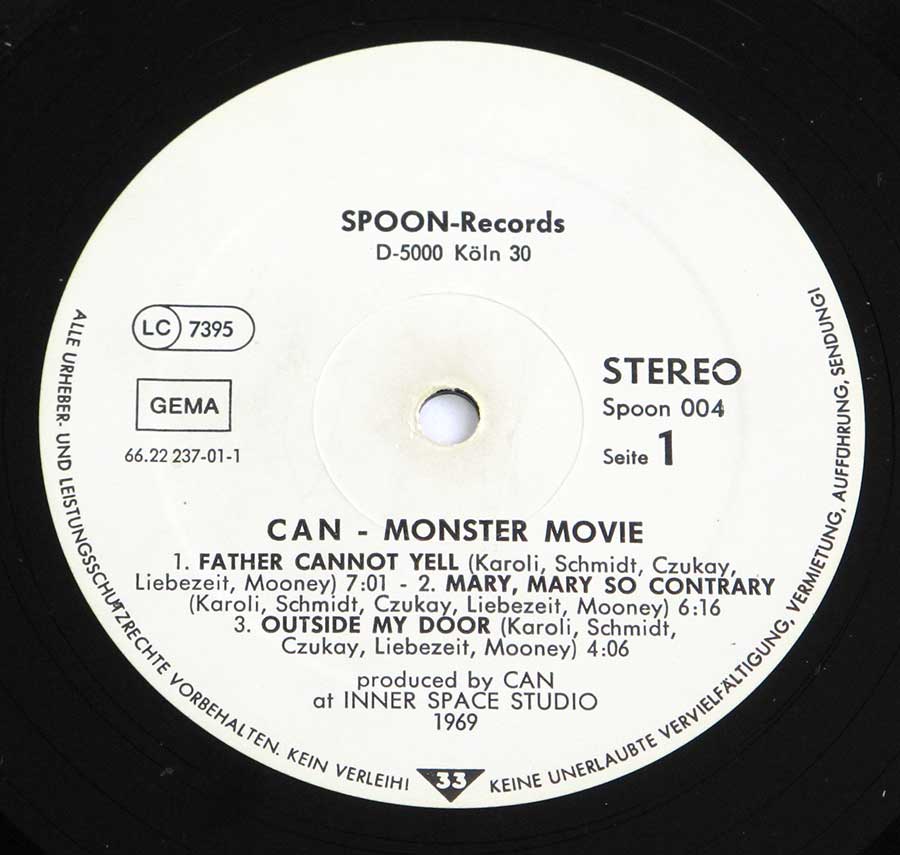
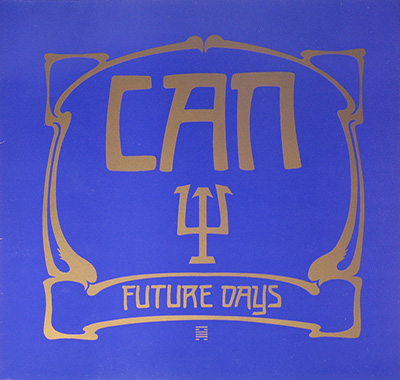
CAN's "Future Days" marks a turning point. Damo Suzuki's last album with the band, it explores ambient soundscapes. Tracks like the title piece and "Bel Air" create a mesmerizing, atmospheric journey that defines Krautrock innovation.
- Future Days (1973, Germany) - Future Days (1973, Germany, Re-Issue) CAN - Future Days ( 1973 , England )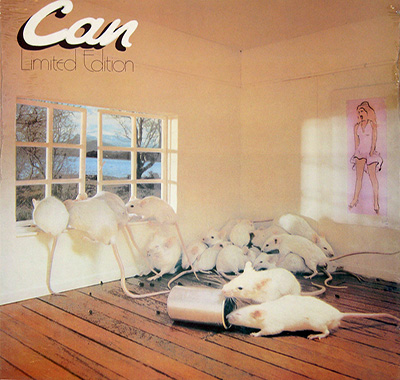
"Limited Edition"was recorded at Inner Space Studios, a fitting name for a place that became the laboratory for sonic experimentation. Inner Space Studios provided CAN with the freedom to push boundaries and redefine the possibilities
Learn more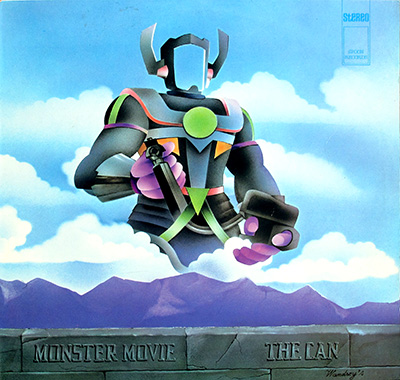
Monster Movie is the debut album by the German krautrock band Can, recorded and released in 1969. After the release of their first two singles in 1968, Can produced an album that was to be their full-length debut
Learn more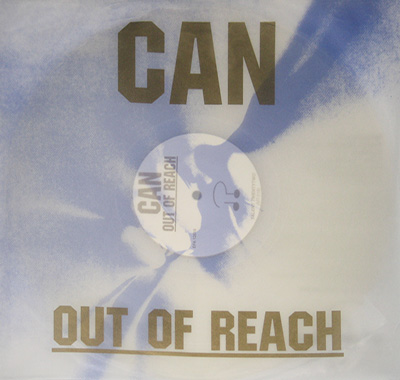
"Out Of Reach" emerged from the creative womb of Inner Space Studio, where the genius of CAN's musicians was captured and immortalized. The album marked yet another chapter in the band's storied history
Learn more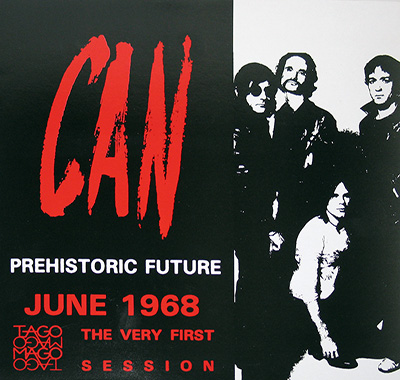
"Prehistoric Future" is an album by the influential German experimental rock band (akak Krautrock) CAN, originally released in 1981. The album features tracks from the band's early years
Learn more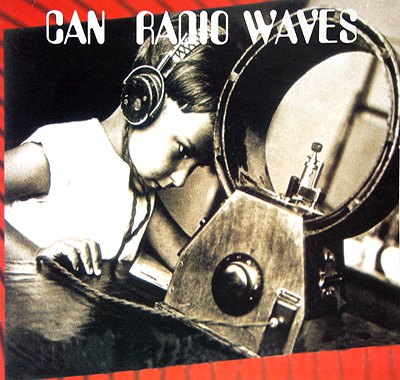
The album opens with "Paperhouse," a mesmerizing track recorded during a Beat-Club TV session in the spring of 1971. Clocking in at 6:31, the song unfolds with hypnotic rhythms and unconventional structures
Learn more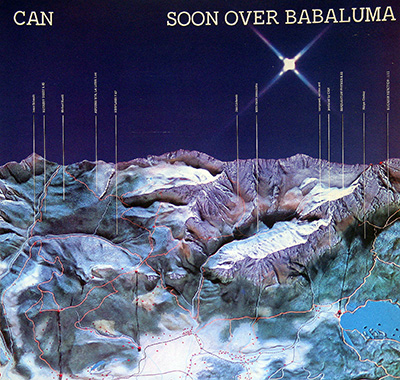
The album, released in 1974 on Spoon Records in Germany, holds a distinctive place in the band's discography for various reasons, most notably the unique production process employed during its creation. "Soon Over Babaluma"
- Soon Over Babaluma ( 1973 , England ) - Soon Over Babaluma ( 1974 , Germany )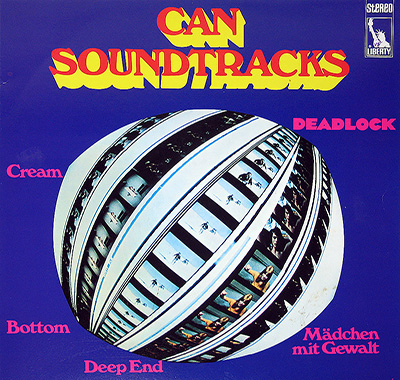
Soundtracks is a soundtrack album by the Krautrock group Can. It was first released in 1970 and consists of tracks written for various films. The album marks the departure of the band's original vocalist Malcolm Mooney
Learn more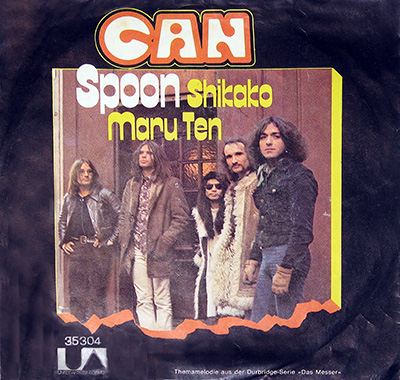
CAN, a pioneering German experimental rock band formed in the late 1960s, was known for pushing the boundaries of conventional rock music. The release of "Spoon b/w Shikako Maru Ten" showcases the band's innovative approach to sound
Learn more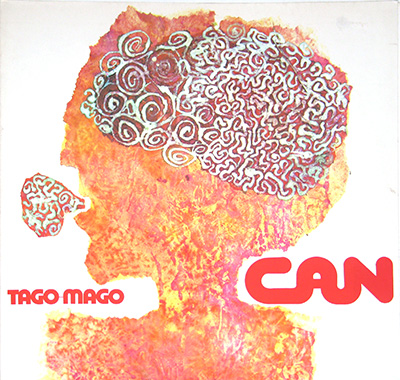
"Tago Mago" encapsulates Can's relentless spirit of exploration. Tracks like the chaotic opener "Paperhouse", the hypnotic "Halleluwah", and the rhythmic intensity of "Aumgn" defy categorization. Damo Suzuki's enigmatic vocals
Learn more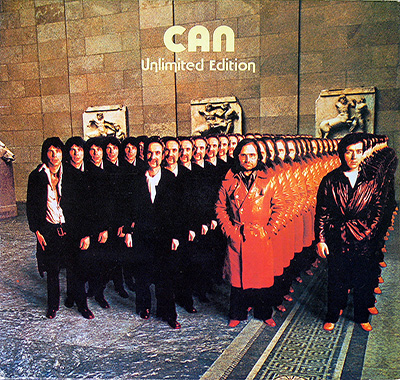
"Unlimited Edition" is a Can rarities collection spanning 1968-1976. It features singers Damo Suzuki & Malcolm Mooney. Cover photos were taken in the British Museum's Pantheon room.
Learn more